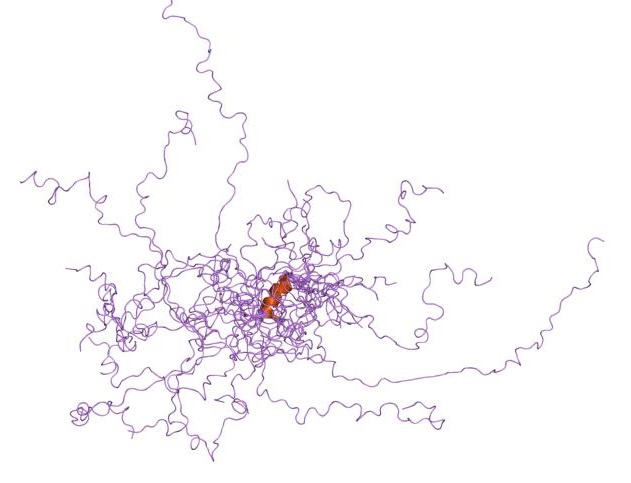Pappu to explore ways in which charge contributes to diverse states of proteins
Rohit Pappu recently received an NSF grant to study the impact of charge regulation on intrinsically disordered proteins

Intrinsically disordered proteins (IDPs) are defined by structural diversity, and the determinants of this diversity are an important area of biophysical investigation. IDPs are involved in a range of important biological processes, including cell signaling and regulation that allow healthy cells to respond to environmental factors appropriately, but they are also associated with human diseases like cancer and neurodegenerative disorders.
Rohit Pappu, the Gene K. Beare Distinguished Professor in the Department of Biomedical Engineering in the McKelvey School of Engineering at Washington University in St. Louis, received a four-year, $1.2 million grant from the National Science Foundation to study the impact of charge regulation on intrinsically disordered proteins. The study of IDPs and understanding their function and regulation presents a unique challenge to the field of molecular biophysics.
Understanding how diversity of structures and the array of charge states impacts protein function is non-trivial. The proposed project aims to take on the challenge of modeling how the charge written into a protein sequence is influenced by sequence- and structure-specific uptake or release of protons and vice versa. If successful, the research will move the field toward a complete description of charge and conformational states for the plethora of naturally occurring IDPs.
The project will integrate experimental and computational approaches, including novel machine learning tools, to develop a full description of the charge states and conformations of IDPs under different environmental conditions. This blend of approaches will be incorporated into instructional modules for research trainees and students and create new workflows for solving challenging problems in molecular biophysics through WashU’s Center for Biomolecular Condensates.




